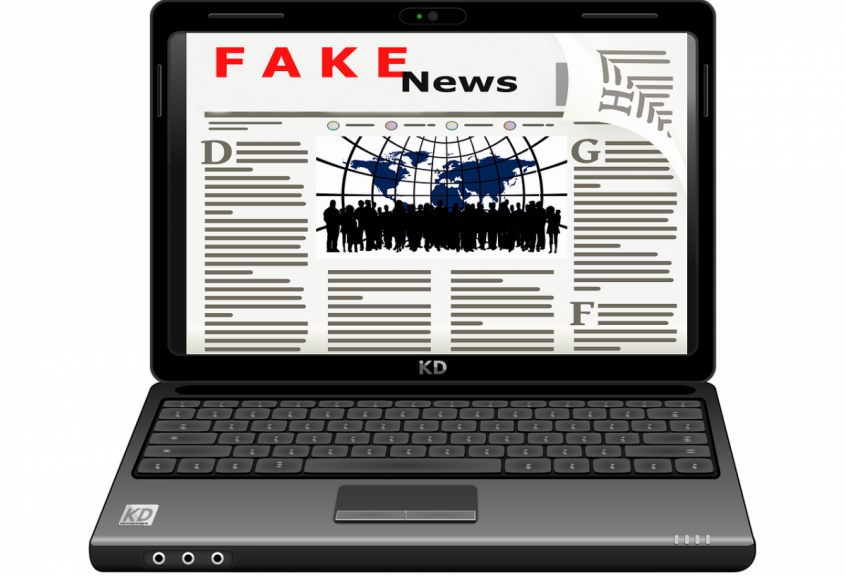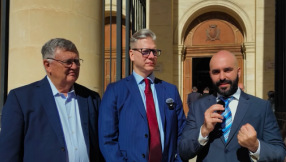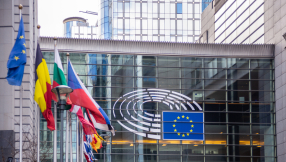'Fake news' is big news. Stories are made up and shared online either for political purposes, financial gain (those clicks mean revenue, folks) or sheer mischief.

Today, the famous quip about a lie travelling half-way around the world while truth is still pulling its boots on has never been more true. We have to work to tell the difference and most of us can't be bothered. Now Pope Francis is weighing in too. According to a Reuters report, he's writing a message for the Catholic Church's World Day of Social Communications on the theme, 'The truth will set you free. Fake news and journalism for peace.'
Here's where we might say Christian Today caught up with Francis at our Islington office and asked him about the problem of fake news. There's always the risk, though – miniscule, you might think, but it happens – that someone might actually believe it. So no, we didn't – but we're very glad someone of real moral authority is talking about it.
Because there isn't one problem with fake news, there are two. One of them is far more serious than the other – and it's not what you might think.
The obvious problem with fake news is that it deliberately encourages people to believe things that aren't true. So Francis, for instance, is supposed to have called for a merger between Christianity and Islam, said it's not necessary to believe in God to be a good person, and that 'all religions are true'. These are all hoaxes – seriously irritating if you're a Catholic, but not actually dangerous. But a fake news story alleging Hillary Clinton and her top campaign aide were running a child abuse ring from a Washington pizza parlour gained widespread currency and led to a shooting at the Comet Ping Pong restaurant. No one was hurt, but the shooter got four years in jail. Fake news can kill.
Up to a point, though, it's easy enough to deal with. Just do your research. The fact that someone's shared something on Instagram doesn't mean it's true. If it doesn't seem quite right – or if it does, and it just seems to fit our worldview a little too conveniently – check it. As Paul tells the Thessalonians: Do not despise prophecies, but test everything; hold fast what is good. Abstain from every form of evil (1 Thessalonians 5: 19-22).
The real problem with fake news is elsewhere – and it's far more pernicious. It's the way the term can so plausibly and reflexively be used to write off any fact that contradicts someone's cherished opinion or wounds their pride. And yes, Donald Trump is a chief offender here, with his Twitter tirades against the 'Mainstream Media' (he's been at it again over Puerto Rico). Every country's leaders leave mixed legacies behind them and Trump will be no exception. But his popularising of this contemptuous dismissal of unpalatable truth will be one of his most enduringly toxic.
The 'fake news' jibe shuts down debate and shuts out truth. It demonises the truth-teller as well as the liar. It represents not just closed ears, but closed minds and hearts. It places those who use it on a level with Pilate, who asked Jesus cynically, 'What is truth?' but didn't stay for an answer (John 18:38). It privileges the values of the tribe, so that reality is warped to fit a predetermined version of truth – and woe betide anyone who dares to ask questions.
And Christians shouldn't get too complacent, either. We have our tribes as well. While the Church in God's eyes might encompass everything from liberal Anglican to neo-fundamentalist Calvinist, in practice they might barely recognise each other as fellow-believers, let alone embracing each other as fellow members of the body of Christ. That God you worship in your neo-Gothic cathedral amid fumes of incense and rainbow-coloured stoles? Fake news. And your straight and narrow Presbyterian road to righteousness? Ditto.
So how about taking a pattern for news consumption from one of the best of sources – a Gospel writer? In the first view verses of Luke 1, he says there've been many attempts to write down the gospel story. He, though, has carefully investigated everything from the beginning, and will write down everything for Theophilus 'so that you may know the certainty of the things you have been taught' (verse 4). The implication is that these other attempts haven't been up to much, but that he, on the contrary, has done his research. He may have included things the others didn't. He probably excluded things they'd added or invented. Either would expose him to the charge of purveying 1st-century fake news. But he sticks by his story – and so, 2,000 years later, do we.
Truth is not tribal. We ought to be confident enough and wise enough to hear what we don't like without automatically dismissing it. That's how we learn; that's how God speaks. Christians are people of good news, and good news is not fake news.
And fake news is not good news.
Mark Woods is the author of Does the Bible really say that? Challenging our assumptions in the light of Scripture (Lion, £8.99). Follow him on Twitter:@RevMarkWoods













